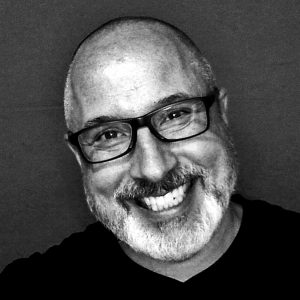PT BUSINESS

life COACHING strategies for better PT results
Life coaching strategies can help your clients achieve unprecedented results and unlock the greatest version of themselves. Rod Macdonald explains.
If you’re like most personal trainers, you’ll have at least one client who gives it 100 per cent in the gym when they’re with you, but they self-sabotage and dismantle the hard work they put in between workouts. Sometimes clients can be their own worst enemies.
Clients often have bright, shiny goals inextricably paired with the shadow of negative habits that create a physical and emotional tug of war; unfortunately, it’s not uncommon for the clients to lose out. As a result, many PTs get to the point that they wonder if a background in human behaviour might serve them better than anatomy and physiology, simply because so many clients seem to create barriers on the way to achieving their goals! This nuance is where life coach language comes in; leveraging techniques to affect the mind and heart of a client beyond the physical challenges of a workout and, in many cases, holding themselves accountable and getting out of their own way when they’re not with you.

What is a life coach?
While the term is more prevalent than ever, the reputation of life coaches is similar to that of PTs 30 years ago (“so you hired someone to hand you weights and count reps?”). The misinformed see life coaches as self-appointed personal development gurus, or paid friends (without benefits). All these false stereotypes diminish the actual value trainers and coaches offer their clients. When personal trainers include life coach skills in their toolkit, they can dramatically increase the likelihood of success for their clients. This enhancement counteracts some of the negative influences in their lives, alleviating some of the real or imagined excess baggage they may be carrying around.
LIFE COACHES VERSUS SPORT OR FITNESS COACHES
The concept of coaching a client is not new and, depending on your background, may even be integrated into your existing education. However, that background may be from a sports coaching paradigm which is, ultimately, about helping an individual or group excel in the physical, often competitive realm; often with a short-term goal in mind, such as a workout, game or season.
Life coaching looks at the whole person and could be considered an ally of counselling and psychology, similar to how PTs are allies of physiotherapy and sports medicine. Simply put, life coaches help people get from where they are to where they want to be in their lives, career, business, relationships, health, or other areas in need of attention. Life coaches who don’t have a PT background will often collaborate with personal trainers, nutritionists, and other professionals to create a network of support for their clients. This creates an opportunity for you as a PT, either in collaboration with life coaches, or to acquire the knowledge needed to provide that support yourself.
Coaching presupposes that the client inherently has the solutions to their challenges; and coaches help them reveal those solutions. This is achieved by supporting the client to see, hear, and feel different perspectives, from which they can perceive new paths to reach their desired destination. By using a “coach-led, client-centric” approach, asking empowering, solution-focused questions you can awaken a client’s creativity to dissolve self-imposed roadblocks (this is instead of telling the client what to do, as that would be a consultant). This process cultivates confidence, builds self-esteem, and makes space for courage to grow, allowing the client to do the right things more consistently, where temptation or fear may have previously existed.
7 LIFE COACHING QUESTIONS YOU CAN USE TODAY
- What do you want, specifically?
- When do you want it?
- What will you do to get it and how frequently?
- What will your life be like when you achieve your goal?
- What beliefs will support you in achieving your goal?
- What obstacles might you encounter along the way, and how will you overcome them?
- Who will serve as your support team along the way to achieving your goal?


STAY IN YOUR LANE
To be clear, unless they have some other level of education, life coaches are not psychologists and should never wade into the deeper waters that psychologists navigate. Whereas psychologists spend most of their time exploring the past with their patients and unearthing traumas to heal, life coaches spend most of their time focusing on the present with their clients, and looking ahead to what they can create in their future. When life coaches look to the past with their clients, they look for historically successful strategies that may serve as a framework to build a better future, rather than looking for trauma. Whenever a coach encounters a client that presents an issue that is out of their scope, it is their responsibility to refer them to a more qualified professional, just as a PT would refer an injured client to a sports medicine physician.
HOW TO INTEGRATE LIFE COACH LANGUAGE TODAY
While getting certified as a life coach is the best route, you can begin to integrate some life coaching language to immediately see results. The great thing is that many fitness professionals unknowingly use coaching language already. The key is empowering the client by asking rather than telling, which can be difficult for some trainers. The first step is accurately identifying what the client wants, when they want it, and what they need to do to get it. That’s when the magic happens!
10 WAYS TO INTEGRATE LIFE COACH LANGUAGE
- Ask questions instead of telling
- Get crystal clear about what the client wants
- Have the client explore what life will be like when they achieve it
- Have the client identify the first three small steps to get there
- Get commitment for when they will start
- Hold them accountable
- Celebrate when they have success
- Seek what they learned when they fall short of their goals
- Encourage them
- Follow up to support them
GO FOR THE FOURTH DIMENSION
A simple goal is rather two-dimensional (such as losing weight). A well thought-out goal with a time frame is three-dimensional. The fourth dimension is exploring the thinking, beliefs, and emotions of having achieved the goal, even before it has happened. This fourth dimension creates a gravitational pull towards the goal because it is rooted in a sense of achievement, not just wanting something far away. It goes beyond words to integrate emotions, feelings, moods, states, and beliefs, so the goal almost happens naturally. Great coaches flex and flow between being like cheerleaders and army recruit instructors, blending encouragement, inspiration, accountability, and “tough love.”
Suppose a foundation of empowering questions is the soil, and four-dimensional goals are the seeds. In that case, accountability is the combined water and sun that create the optimal environment for the client to thrive and achieve their goal; accountability to what will be accomplished between sessions, taking the form of follow-up text messages, brief calls, and clear expectations.


HELPING THEM BE THEIR BEST
Personal training clients, like all humans, are creatures of habit; when they get used to a certain lifestyle, it becomes comfortable. That comfort dulls learning and growth, while at the same time increasing fear of change. By levelling up your language and integrating a life coach approach, you will better serve your clients, and they’ll get better results. You’ll also have the professional satisfaction of creating better business continuity, and your clients will become the best possible version of themselves.

Rod Macdonald
With 30+ years’ experience in personal development and as the CEO of the Certified Coaches Federation, Rod is a leading authority on personal and professional change. Rod has spoken on stages in the United States, Australia, New Zealand, China, and across Canada, and co-wrote the book, “Adversity to Adaptability,” the best-selling “Foundations of Professional Personal Training,” several certifications, and hundreds of articles. Based in Toronto, Canada, Rod is a four-time Ironman competitor, cross-Canada cyclist, former competitive rower, 200-hour RYT yogi, and most importantly, a proud husband and father.